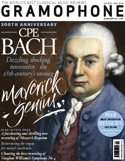Texte paru dans: / Appeared in:
*

GRAMOPHONE (05/2014)
Pour s'abonner /
Subscription information
Avie
AVIE2296

Code-barres / Barcode : 0822252229622
Reviewer: Richard Wigmore
Sounds Baroque follow
their debut album (10/11) with another engaging snapshot of the Arcadian
Academy’s Sunday afternoon ‘conversations’, magnets for the Roman intellectual
elite held in the sumptuous palazzi of Marquis (later Prince) Ruspoli, Cardinal
Ottoboni et al. The programme unfolds as a series of musical duels, bookended by
substantial cantatas by Francesco Gasparini and Handel, and taking in a fine
trio sonata by Caldara and the keyboard works that perhaps featured in the
famous Roman gladiatorial contest between Handel and Domenico Scarlatti.
In Gasparini’s attractive Io che dal terzo ciel, Anna Dennis, pure and limpid of tone, and the pleasing countertenor of Andrew Radley sigh and coo beguilingly as Venus and Adonis. The musette duet ‘La pastorella ove il boschetto ombreggia’, where the ever-lively continuo group evokes bucolic tambourines, is especially delightful. Their voices combine eloquently in the grieving suspensions of Scarlatti’s Questo silenzio ombroso, even if the central minuet seems rather too jauntily paced for its lamenting text.
Handel’s Il duello amoroso, in which the shepherd Daliso is kept dangling, then rejected (for not being man enough) by Amaryllis, is at once the most cynical and most operatic of Handel’s Italian cantatas. Dennis and Radley could have brought more savour to the acerbically witty Italian text (compare Andreas Scholl and Hélène Guilmette on a rival Harmonia Mundi disc). But their singing is mellifluous, nimble and gracefully shaped, with Dennis nicely catching Amaryllis’s mix of playful caprice and dismissive spite. In the solo pieces Sounds Baroque director Julian Perkins is neat and elegant, if perhaps a tad contained in Handel’s showy G major Sonata, while in the Caldara the solo violins entwine soulfully and spar exuberantly by turns. As ever, Avie’s presentation is first-rate, with full texts and translations, and informative essays by David Vickers and Perkins himself.
Cliquez l'un ou l'autre
bouton pour découvrir bien d'autres critiques de CD
Click either button for many other reviews


